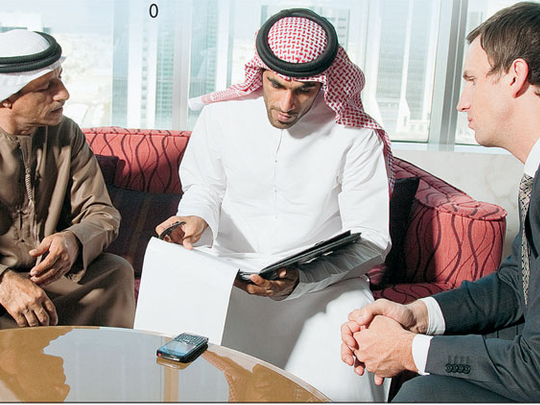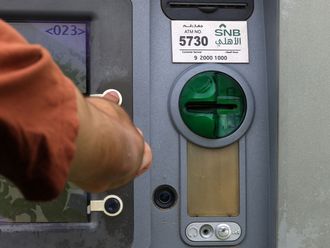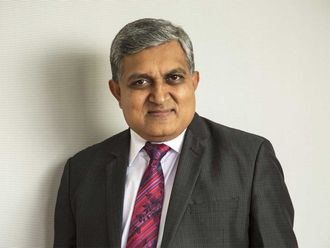
Dubai: It takes 20 days and eight procedures to start a business in the Middle East and North Africa (Mena), down from 39 days and 11 procedures in 2006, according to the report, Doing Business 2011: Making a Difference for Entrepreneurs, published by the World Bank.
In the past year, 11 of 18 Mena economies adopted 22 business regulation reforms to create opportunities for domestic entrepreneurs, according to the report.
Trade facilitation was high on the priority list. Six economies in the region modernised customs procedures and port infrastructure — Bahrain, Egypt, Saudi Arabia, Tunisia, the UAE and the West Bank and Gaza.
Also popular was improving credit information systems, which occurred in Iran, Jordan, Lebanon, Syria and the UAE.
Doing Business 2011 pioneers a new measure showing how much business regulation has changed in 174 economies since 2005. By this measure, Saudi Arabia and Egypt were among the 15 most active economies.
GCC lacks disclosure
"The UAE and GCC countries lack disclosure and availability of credit information systems, however there is good progress as Emcredit has started to work on it. More unified and aggressive approach is required by GCC countries to overcome the above obstacles," investment adviser Jitendra Gianchandani, Chairman and Managing Partner of Jitendra Consulting Group, told Gulf News.
"The UAE and other GCC countries still depend on oil and trade. Diversification to non-oil sectors is slow, need to increase. Besides, the GCC countries were over-exposed to real estate than Singapore and Hong Kong, which were badly effected partly due to the global crisis and partly due to the lack of a clear law on freehold ownership."
Many of the region's business regulation reforms in the past year involved new information technologies.
Tunisia led the world in improving the ease of paying taxes by introducing electronic systems for payment. The country also upgraded its electronic data interchange system for imports and exports.
"New technology underpins regulatory best practice around the world," said Dahlia Khalifa, an author of the report. "Technology makes compliance easier, less costly, and more transparent."
Egypt continued to move up in the global rankings, rising five places to 94. In the past year, Egypt reduced the cost of business start-up and made trading easier by introducing an electronic system for submitting export and import documents.
The Mena region fared well in facilitating cross-border trade, with average procedures in export and import reduced. However, the regional countries still require 20 days to export and 24 days to import goods, down from 25 and 32 days respectively.
The UAE ranks fourth in the cost of containers, at $5,421 (Dh19,908) to export goods and it ranks third in the cost of importing goods in a container.
Investor protection
The Mena countries have increased their rating in the investor protection index from 4.5 points to 4.8 points in five years while in the extent of disclosure index, they raised their position from 5.7 points to 6.3 points in five years.
In the Mena region six investor protection reforms in four of the 18 economies have taken place since 2005.
"When corporate governance reforms started in 2001, the first challenge was to find an Arabic equivalent to corporate governance. The reforms would not have been possible without an agreement about the meaning of the term in the local language and context," the report said.
"Thanks to a committee of linguists from across the region, hawkamat al-sharikat, meaning ‘the governance of companies,' was agreed on after about a year." Despite recent improvements, legal protections in the region are often weak, it said.
Gianchandani said longer-term business or permanent residence cards could help boost investor confidence.
"The UAE [and] GCC should open up long term visa or at least permanent residence cards for five to ten years to boost investor confidence," he said.
Access to corporate information during a trial to establish director liability is often limited. Such access helps minority investors who suspect that the company has been run improperly to gather the evidence needed to prove their case.
Four economies—Egypt, Morocco, Saudi Arabia and Tunisia—have started to focus more on regulating corporate disclosure and related-party transactions.
Saudi Arabia topped the list in registering a property while the UAE ranks fourth. It takes 33 days and 5.7 per cent of the cost of property for registration on an average to register a property in Mena, down from 54 days and 7.2 per cent five years ago.
According to the report, it takes only a single procedure to register a property in the UAE.
"Transferring property in the Mena is as fast as in OECD high-income economies at 33 days on average. In the UAE it is just two days," the report said.
Eleven of 18 economies have electronic databases for encumbrances and ownership verification, though Bahrain is the only one offering online registration. The average cost in the region remains fairly high, at 5.7 per cent of the property value. But in five economies, including Kuwait and Qatar, the cost is less than 1 per cent of the property value.
In nine others the cost exceeds five per cent — and it ranges up to 28 per cent in Syria, with the world's highest transfer taxes.
"Latvia, an EU country, has drawn up a new property law that offers five years' residence on the purchase of property worth only 146,000 euros. It will allow the holder to stay in any Schengen country and work under certain conditions," Gianchandani says.
Time to Unify policies
To improve the business environment, the UAE's seven emirates should unify the policies, said a top business consultant.
"At present, all seven emirates have different chambers of commerce and departments of economic development, which issue licences. And the procedures vary from one emirate to the other, which needs to change," Jitendra Gianchandani, Chairman and Managing Partner of Jitendra Consulting Group, told Gulf News.
"Also each emirate has its own set of procedures for incorporation of companies, be it LLC or civil or professional licences.
Capital and auditing requirements as well for LLCs also vary from emirate to emirate," he said.
The UAE government is currently working on these, especially on unique naming protocol for businesses so that duplication of trade names could be eliminated.
"Trade names are also not protected due to separate chambers of commerce for each emirate," he said.
"These issues must be sorted out to improve the business environment."
Have you tried setting up a business? What difficulties did you face?











